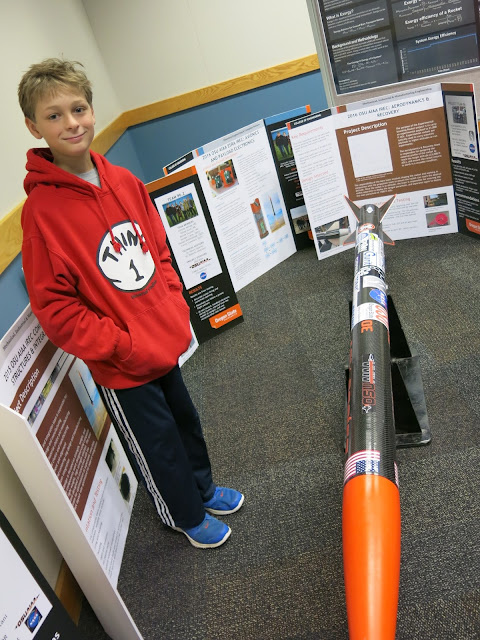Because even adults can learn a thing or two!
 A Saturday workshop at the Barbey Center in Astoria.
A Saturday workshop at the Barbey Center in Astoria.  The Pufferfish Kit from MATE ROV
The Pufferfish Kit from MATE ROV  We had some buoyancy/balance issues, but for building and constructing in under 90 minutes, we felt pretty good.
We had some buoyancy/balance issues, but for building and constructing in under 90 minutes, we felt pretty good.
If underwater marine robotics is of interest to your students or you, check out:
- Spare Parts: Your local library will likely carry both the book and movie.
- MATE ROV and their workshops
- The Hatfield Marine Science Center is hosting the underwater robotics competition on Saturday April 29th. Go check it out!
I like MATE ROV for a couple of reasons: one, it seems less intense than Lego (and I do like FLL Lego Robotics)! Second, it does not start at the beginning of the school season like FLL, but starts in December which makes the start to your school year a bit less intense. Third, registration is a bit cheaper if you are in the 3 least experienced tiers. You register your team for the tier you feel they are ready for: beginner, beginner/intermediate, advanced, and expert. Fourth, students on teams must vote their team mates into positions i.e., you have to work your way into that position with intention. Fifth, the kits for underwater robotics are cheaper and teams are encouraged to do as much as possible with what they have on hand and with renewable items. Finally, the future of underwater robotics off the Oregon coast and for development is huge and interesting to many and will create great opportunities for many students.
Teachers: you can now sign up your class for one of these Pufferfish workshops at the Columbia Maritime Museum in Astoria. Homeschoolers, you too, can get a group of students together and take this class.
What is required of future marine electronics in the world of energy?
1. They must generate enough energy to have their cost justifiable.
2. They must withstand extreme ocean conditions for years and years.
Did you know that the Pacific Continental Shelf has enough wave energy to supply 1/3rd of the United State's energy needs?




